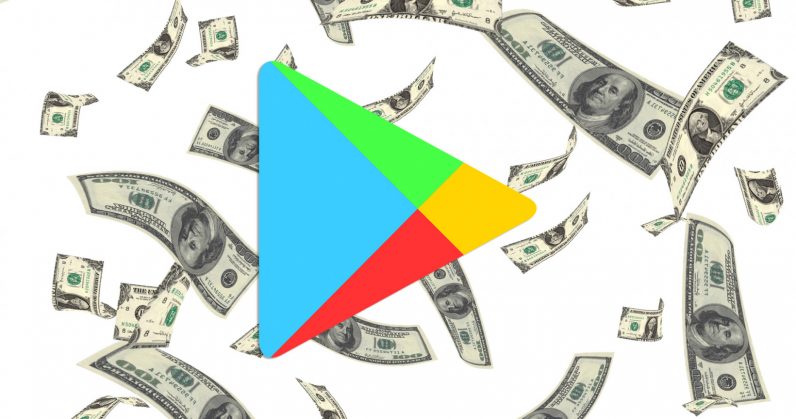2023-5-13 21:48 |
Digital technology is at the heart of daily life, and concerns over national security have risen. The Restricting Emergence of Security Threats Risking Information and Communications Technology (RESTRICT) Act is a recent legislative proposal that aims to mitigate the risk presented by foreign technology.
While TikTok has been the face of this legislation, the reality is that the RESTRICT Act’s impact extends far beyond a single social media platform. From VPNs to the digital economy, the Act’s reach is significantly more expansive.
Unraveling the All Apps Banned by the RESTRICT ActThe RESTRICT Act, championed by Sen. Mark Warner (D–Va.) and Sen. John Thune (R–S.D.), is not explicitly designed to target TikTok or its parent company, ByteDance. Rather, it bestows extensive authority on the government.
In particular, the Secretary of Commerce can probe and prohibit certain transactions between the United States and foreign adversaries concerning information and communications technology.
The act’s framework allows the government to act against technology developed entirely or partially in countries that resist crackdowns on crypto, encryption, or online speech. It has a potentially far-reaching impact on various digital tools and platforms.
Popular Social Networks Worldwide. Source: StatistaFor example, apps like Telegram and Badoo, developed in Russia, could be scrutinized. Likewise, devices from Lenovo, a Beijing-based company that provides solutions for government, healthcare, and large enterprises, could also be under the microscope.
Other potentially affected technologies include the TP-Link router, founded in China. Likewise, digital services like Amazon Web Services or Rackspace that are hosted in China.
Underlying Concerns and Potential ImplicationsThe RESTRICT Act protects against foreign adversaries who could potentially sabotage ICT products or services. It also aims to prevent damage to critical infrastructure, meddle with Federal elections, and manipulate US policies and regulations.
It seeks to protect the United States from the risks associated with foreign adversaries. Especially those who have access to the content Americans share publicly and privately.
The RESTRICT Act could lead to a variety of outcomes. Entities from certain countries might face pressure to sell their stakes in technology widely used by Americans. Alternatively, the legislation could push companies to update their data handling processes and establish transparent policies.
However, the act’s language raises concerns among Americans regarding the extent of the government’s reach. It could affect any hardware, software, product, service, or app linked to an entity in a foreign country deemed adversarial.
This includes various activities such as web hosting, content delivery networks, cloud-based storage, and artificial intelligence. Moreover, machine learning, webcams, drones, desktop and mobile applications, gaming, payments, e-commerce, marketplaces, managed services, data transmission, and more.
Individuals’ Data and the Government’s PowerCompanies have different guidelines regarding the conditions under which they provide user data to law enforcement and government agencies. The data available to the US during this investigation could include information, documents, and reports related to the activity under investigation.
The Secretary could release information unavailable to the public or commercially available if it is of national interest or authorized by Federal law.
The RESTRICT Act is designed to target corporations. Still, the language in its penalties section raises questions about whether individuals could also face penalties for using a banned app through a virtual private network (VPN) or onion services.
The repercussions of the RESTRICT Act matter for several reasons:
First, there is the question of privacy and the power of the government to access data. Users must understand how their information can be accessed and utilized. Second, the legislation could significantly impact the tech industry, potentially altering the available apps and services landscape. This could lead to a decline in the variety of apps available, stifling innovation and limiting consumer choice. Bigger Than TikTok: All Apps Banned by the Restrict ActWhile TikTok has been a notable target due to its massive user base and Chinese ownership, the RESTRICT Act impacts a much larger slice of the tech industry.
Businesses developing technologies in countries deemed adversarial by the US must evaluate their operations and data handling processes to ensure they do not fall afoul of the Act. This includes social media apps, devices, and cloud storage solutions.
TikTok Market Share. Source: StatistaExamining and potentially enacting the RESTRICT Act makes it clear that its impacts will reach far and wide.
The legislation serves as a reminder of the balance between national security and individual privacy. Especially between government oversight and technological innovation.
As users, staying informed and understanding how such laws can impact the technology one relies on daily is essential.
The post The RESTRICT Act Impacts Not Just TikTok, But All Apps appeared first on BeInCrypto.
origin »Bitcoin price in Telegram @btc_price_every_hour
Achain (ACT) íà Currencies.ru
|
|

